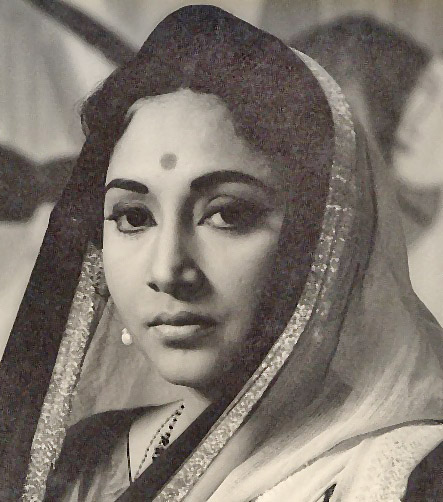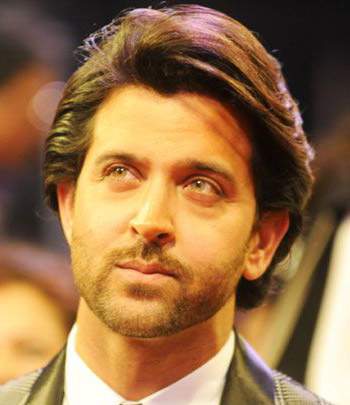Bollywood Masala Mix
Jhutika Roy: geets and bhajans legend of the golden era

Juthika Roy belonged to the golden era of Indian music (1938-1947) and she had no peer when it came to singing geets and bhajans of Meera and Kabir. She started singing at the age of seven and recorded her first Hindi bhajan at the age of 12. She has sung many songs for music directors including her first mentor Kazi Nazrul Islam and the great Bengali music director Kamal Dasgupta. It is said that Kamal Das Gupta and Kumari Juthika Roy recorded a Naat (a poetry that specifically praises the Islamic prophet Muhammad) in the late 1930s that impressed Gupta so much that he embraced Islam.
The Gramophone Company Calcutta in 1927 asked little Juthika to come back after she came of age, but her father did not agree as it was his dream to make her emulate the feat of Master Madan (a talented ghazal and geet singer of the pre-independence era who recorded only eight songs during his life) who had recorded his first song at the age of seven. Their next destination was All India Radio where she auditioned without any instrument with a Rabindra Sangeet and she was chosen. The call from The Gramophone Company of India came six years later.
Juthika Roy's singing was liked by many including Jawharlal Nehru and Mahatma Gandhi who used to listen to her bhajans before prarthana every morning. When she met Mahatma Gandhi he was busy but eager to listen to her bhajans, so he decided that that she would sing while he had his bath in the next room and she went on singing one bhajan after another without any instrument or accompaniment. She sang “Maine Chakar rakho ji”, “Main Ram nam ki churiyan pahenu”, “Gunghata pat khol re”, “Main to wari jaun Ram”, “Alo main apne Ram”, “Matja yogi mat ja” and “Pyare gungut bangh Meera nachire”.
On August 15, 1947 Prime Minister Jawharlal Nehru sent a request to Juthika to keep singing when she had finished her 15 minute slot at All India Radio and she returned and started singing with "Sone Ka Hindustan" and did seven or eight songs because of his request.
The legend of Juthika Roy, the bhajan singer, was born with an experiment in the Bengali department of AIR to record in Hindi. “It was the idea of an employee, Anil Das, who would roam the villages to collect folk songs. Juthika did not know Hindi then, so Kamal Das wrote out the lyrics in Bengali.” The success of the 78 RPM disc prompted a few more bhajan albums. This spawned the Hindi department of AIR. Through a friend of her father’s, she made the acquaintance of Kazi Nazrul Islam, who was on the rolls of the Gramophone Company of India as lyricist and music director. Kazida would always be in silk saffron robes and cap, chewing paan with a smile on his lips. He gave Juthika two songs but they were too easy; even as a child she fancied only serious songs. Nazrul had a big role in Juthika’s debut on the disc. The dealers refused to take Juthika’s album as only Angurbala, Indubala and KC Dey would sell then. Kazida insisted saying that if they did not take her album, they would get nothing else from the company. Ami Bhorer Juthika, with music by her future mentor Kamal Dasgupta, registered record sales. There was no looking back.
She has sung for many Bengali and Hindi movies also but is most popularly known for her Meera Bhajans. She is hailed as ‘adhunik Meera’. She was awarded the Padmashri in 1972 by Indira Gandhi who had also inherited a liking for her songs from her father Jawharlal Nehru.
Juthika Roy was admitted to Ramkrishna Seva Pratishthan with age related ailments and died on Feb 6, 2014 at age 93.
The Gramophone Company Calcutta in 1927 asked little Juthika to come back after she came of age, but her father did not agree as it was his dream to make her emulate the feat of Master Madan (a talented ghazal and geet singer of the pre-independence era who recorded only eight songs during his life) who had recorded his first song at the age of seven. Their next destination was All India Radio where she auditioned without any instrument with a Rabindra Sangeet and she was chosen. The call from The Gramophone Company of India came six years later.
Juthika Roy's singing was liked by many including Jawharlal Nehru and Mahatma Gandhi who used to listen to her bhajans before prarthana every morning. When she met Mahatma Gandhi he was busy but eager to listen to her bhajans, so he decided that that she would sing while he had his bath in the next room and she went on singing one bhajan after another without any instrument or accompaniment. She sang “Maine Chakar rakho ji”, “Main Ram nam ki churiyan pahenu”, “Gunghata pat khol re”, “Main to wari jaun Ram”, “Alo main apne Ram”, “Matja yogi mat ja” and “Pyare gungut bangh Meera nachire”.
On August 15, 1947 Prime Minister Jawharlal Nehru sent a request to Juthika to keep singing when she had finished her 15 minute slot at All India Radio and she returned and started singing with "Sone Ka Hindustan" and did seven or eight songs because of his request.
The legend of Juthika Roy, the bhajan singer, was born with an experiment in the Bengali department of AIR to record in Hindi. “It was the idea of an employee, Anil Das, who would roam the villages to collect folk songs. Juthika did not know Hindi then, so Kamal Das wrote out the lyrics in Bengali.” The success of the 78 RPM disc prompted a few more bhajan albums. This spawned the Hindi department of AIR. Through a friend of her father’s, she made the acquaintance of Kazi Nazrul Islam, who was on the rolls of the Gramophone Company of India as lyricist and music director. Kazida would always be in silk saffron robes and cap, chewing paan with a smile on his lips. He gave Juthika two songs but they were too easy; even as a child she fancied only serious songs. Nazrul had a big role in Juthika’s debut on the disc. The dealers refused to take Juthika’s album as only Angurbala, Indubala and KC Dey would sell then. Kazida insisted saying that if they did not take her album, they would get nothing else from the company. Ami Bhorer Juthika, with music by her future mentor Kamal Dasgupta, registered record sales. There was no looking back.
She has sung for many Bengali and Hindi movies also but is most popularly known for her Meera Bhajans. She is hailed as ‘adhunik Meera’. She was awarded the Padmashri in 1972 by Indira Gandhi who had also inherited a liking for her songs from her father Jawharlal Nehru.
Juthika Roy was admitted to Ramkrishna Seva Pratishthan with age related ailments and died on Feb 6, 2014 at age 93.
banned in Pakistan

The release of the Indian movie Raees, which was scheduled to hit Pakistani cinemas two Sundays ago, was on the following day banned for its “inappropriate” portrayal of Muslims. Rumours about the Mahira Khan and Shah Rukh Khan starrer releasing in Pakistan were ripe for the preceeding week. However, according to Dawn News, the Central Censor Board decided not to release the film in Pakistan.
Dawn News reported sources in the know of the development saying that the reason behind it was that “the content undermines Islam, and a specific religious sect, (It also) portrays Muslims as criminals, wanted persons and terrorists”. Earlier, the film was in turbulent waters owing to the sour relations between Pakistan and India. Pakistani artistes were banned by certain outfits in India, due to which Mahira was not able to promote the film in India.
The film was scheduled to release in Pakistan after the ban on Bollywood films was lifted recently. The news had brought much happiness to its cast and crew, which was gearing up for the film’s big opening on Pakistani theaters on February 10. Mahira Khan, who finally promoted the film through a video call while interacting with Indian media in Mumbai recently, spoke about how people in Pakistan were eagerly waiting for its release. “You know there are more SRK fans than mine. Claps were louder for him, not me. It will release in Pakistan, and everybody is waiting,” she had said.
Last week, Bollywood film Kaabil released in Pakistan after a months-long self-imposed ban by exhibitors was lifted.
Dawn News reported sources in the know of the development saying that the reason behind it was that “the content undermines Islam, and a specific religious sect, (It also) portrays Muslims as criminals, wanted persons and terrorists”. Earlier, the film was in turbulent waters owing to the sour relations between Pakistan and India. Pakistani artistes were banned by certain outfits in India, due to which Mahira was not able to promote the film in India.
The film was scheduled to release in Pakistan after the ban on Bollywood films was lifted recently. The news had brought much happiness to its cast and crew, which was gearing up for the film’s big opening on Pakistani theaters on February 10. Mahira Khan, who finally promoted the film through a video call while interacting with Indian media in Mumbai recently, spoke about how people in Pakistan were eagerly waiting for its release. “You know there are more SRK fans than mine. Claps were louder for him, not me. It will release in Pakistan, and everybody is waiting,” she had said.
Last week, Bollywood film Kaabil released in Pakistan after a months-long self-imposed ban by exhibitors was lifted.
Roshan's plan

Hrithik Roshan’s last release Kaabil fared well at the box office and Hrithik, understandably, is on cloud nine. Even as he was doing the promotional rounds for his films, he was spotted spending time with friends and ex-wife Sussanne Khan. Is reconciliation on the cards? Hrithik clears the air that it is not the case. In fact, he is not even thinking about remarriage.
“I am happy and fulfilled. I am surrounded by love, and I am creatively satisfied. I don’t think there is anything I miss right now. Marriage or companionship happens when you find someone special. Also, marriage is a consequence, not a plan. So, you can’t plan to get married,” says Hrithik.
Even as he maintains a cordial equation with Sussane, Hrithik makes sure that his kids — Hrehaan and Hridhaan — remain unaffected, irrespective of the circumstances. He makes it a point to spend quality time with them, and plans lots of vacations and getaways, to ensure they grow up to be well-rounded individuals.
“Every actor is busy, but you need to have your priorities sorted and assign time. I love spending time with my kids and we have been doing this (taking vacations) since they’ve been old enough to travel. Our vacations are hard work. There is no time to laze and sleep in the afternoons. The trips are all about overcoming fears,” says Hrithik.
Hrithik brought in Christmas last year with the kids in the French Alps and thereafter, continued the celebrations in Dubai where he was joined by Sussanne. He recalls the last vacation he took with his kids in Botswana. “They loved that trip because we had to sleep in the middle of the desert with wild animals all around us. That was the scariest and the best trip”, the actor says.
“I am happy and fulfilled. I am surrounded by love, and I am creatively satisfied. I don’t think there is anything I miss right now. Marriage or companionship happens when you find someone special. Also, marriage is a consequence, not a plan. So, you can’t plan to get married,” says Hrithik.
Even as he maintains a cordial equation with Sussane, Hrithik makes sure that his kids — Hrehaan and Hridhaan — remain unaffected, irrespective of the circumstances. He makes it a point to spend quality time with them, and plans lots of vacations and getaways, to ensure they grow up to be well-rounded individuals.
“Every actor is busy, but you need to have your priorities sorted and assign time. I love spending time with my kids and we have been doing this (taking vacations) since they’ve been old enough to travel. Our vacations are hard work. There is no time to laze and sleep in the afternoons. The trips are all about overcoming fears,” says Hrithik.
Hrithik brought in Christmas last year with the kids in the French Alps and thereafter, continued the celebrations in Dubai where he was joined by Sussanne. He recalls the last vacation he took with his kids in Botswana. “They loved that trip because we had to sleep in the middle of the desert with wild animals all around us. That was the scariest and the best trip”, the actor says.
role in Indian film

Not many freshman students arrive at The University of Texas at Dallas with a movie credit already to their name.
Finance freshman Sasha Peshwani, 19, who goes by the screen name Sasha Singh, has a feature role in a new independent Indian film, Appatlo Okudundevadu.
Described by The Times of India as “a gripping story, high on action and emotion,” the movie opened in December at FunAsia in Richardson and Regal MacArthur Marketplace in Irving, Texas and will be re-released this year in India.
The movie centers on an athlete who has great potential but is led into crime and also becomes a victim of circumstances. Singh plays a journalism student tracking down the facts about his story.
“My character is in present time, and most of the film which is about his life, is in flashbacks. I’m kind of solving the puzzle about this guy,” she said.
Singh caught the acting bug early, taking theater classes in middle school and high school and performing in school plays. She went on to perform with local community theater groups, and has also acted in commercials and episodes on the Being Indian web series.
“They’re silly and fun, but it was a lot of fun getting to know the YouTube scene,” Singh said.
In 2013, she won the title of Miss Teen Asian American Texas, which clinched her passion for the performing arts.
“That’s when I really just fell in love with it,” she recalled. “I guess this is kind of cheesy, but people usually talk about performance high. That’s what I feel when I’m onstage or in front of a camera. I just feel like I’m on top of the world. Everyone finds that in their own unique way, and I found that in acting.”
Singh said she chose UT Dallas for her degree program because it’s close to her hometown of Plano and she can take online classes as she pursues her acting career at different locations around the world.
“Also I’m just proud to be a Comet. My mom (Madhu Peshwani BA’04) and my sister (Sanya Peshwani BS’14) went here so it’s very close to my heart,” Singh said.
Her mother went on to establish a Bollywood fusion dance academy in Plano, Irving, Carrollton and Southlake where Singh teaches classes. (Singh also performs with the Bollywood dance team UT Dallas Sharara.)
When the mother and daughter traveled a few years ago to Mumbai, India, to purchase dance costumes for the academy, Singh decided to leave everything behind and pursue her passion of acting in the Indian film industry, finishing high school by taking online classes through the UT System.
“That’s when I stumbled upon this audition for this film. It was very far-fetched, and I was on top of the world when I got the call back for the film. I was ecstatic,” she said.
The movie is an example of Tollywood, a film industry based in south India using the Telugu language, rather than the Hindi scripts of Bollywood films made in north India. Singh doesn’t speak Telugu, so the role was particularly challenging.
“It was hard at first. It’s like an alien language to me, but slowly I started to pick up on words,” Singh said. “Definitely the lines were hard to emote. It took a lot of practising and hard work, but I think it turned out well.”
Because of background and outdoor noise, the cast couldn’t use microphones as they filmed their scenes, so voices were dubbed in later.
“Most of the actors who spoke the language dubbed their own part. Mine was dubbed by a lovely young girl, a singer. It wasn’t my voice, but I was speaking. It was definitely a new experience.”
When the movie was released, Singh said it was “definitely weird” to see herself on the big screen.
“I’d been going to this theater my whole life. Seeing myself was like, ‘Whoa! Is this a dream?’ It was really weird for me,” Singh said. “But it was satisfying. It was rewarding. After all the hard work that was put in I finally got the finished product.”
Finance freshman Sasha Peshwani, 19, who goes by the screen name Sasha Singh, has a feature role in a new independent Indian film, Appatlo Okudundevadu.
Described by The Times of India as “a gripping story, high on action and emotion,” the movie opened in December at FunAsia in Richardson and Regal MacArthur Marketplace in Irving, Texas and will be re-released this year in India.
The movie centers on an athlete who has great potential but is led into crime and also becomes a victim of circumstances. Singh plays a journalism student tracking down the facts about his story.
“My character is in present time, and most of the film which is about his life, is in flashbacks. I’m kind of solving the puzzle about this guy,” she said.
Singh caught the acting bug early, taking theater classes in middle school and high school and performing in school plays. She went on to perform with local community theater groups, and has also acted in commercials and episodes on the Being Indian web series.
“They’re silly and fun, but it was a lot of fun getting to know the YouTube scene,” Singh said.
In 2013, she won the title of Miss Teen Asian American Texas, which clinched her passion for the performing arts.
“That’s when I really just fell in love with it,” she recalled. “I guess this is kind of cheesy, but people usually talk about performance high. That’s what I feel when I’m onstage or in front of a camera. I just feel like I’m on top of the world. Everyone finds that in their own unique way, and I found that in acting.”
Singh said she chose UT Dallas for her degree program because it’s close to her hometown of Plano and she can take online classes as she pursues her acting career at different locations around the world.
“Also I’m just proud to be a Comet. My mom (Madhu Peshwani BA’04) and my sister (Sanya Peshwani BS’14) went here so it’s very close to my heart,” Singh said.
Her mother went on to establish a Bollywood fusion dance academy in Plano, Irving, Carrollton and Southlake where Singh teaches classes. (Singh also performs with the Bollywood dance team UT Dallas Sharara.)
When the mother and daughter traveled a few years ago to Mumbai, India, to purchase dance costumes for the academy, Singh decided to leave everything behind and pursue her passion of acting in the Indian film industry, finishing high school by taking online classes through the UT System.
“That’s when I stumbled upon this audition for this film. It was very far-fetched, and I was on top of the world when I got the call back for the film. I was ecstatic,” she said.
The movie is an example of Tollywood, a film industry based in south India using the Telugu language, rather than the Hindi scripts of Bollywood films made in north India. Singh doesn’t speak Telugu, so the role was particularly challenging.
“It was hard at first. It’s like an alien language to me, but slowly I started to pick up on words,” Singh said. “Definitely the lines were hard to emote. It took a lot of practising and hard work, but I think it turned out well.”
Because of background and outdoor noise, the cast couldn’t use microphones as they filmed their scenes, so voices were dubbed in later.
“Most of the actors who spoke the language dubbed their own part. Mine was dubbed by a lovely young girl, a singer. It wasn’t my voice, but I was speaking. It was definitely a new experience.”
When the movie was released, Singh said it was “definitely weird” to see herself on the big screen.
“I’d been going to this theater my whole life. Seeing myself was like, ‘Whoa! Is this a dream?’ It was really weird for me,” Singh said. “But it was satisfying. It was rewarding. After all the hard work that was put in I finally got the finished product.”